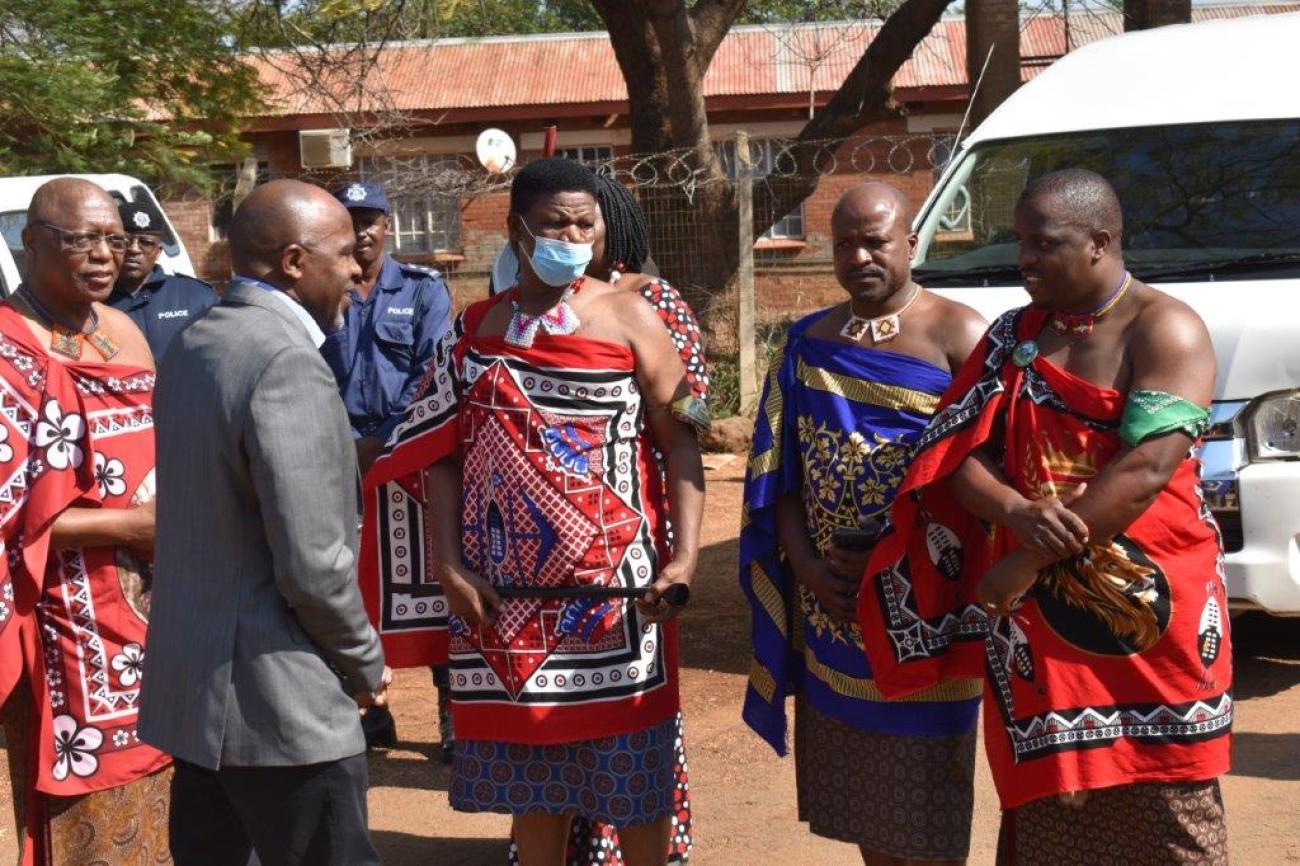UN Resident Coordinator and UNDP Resident Representative tour small town in support of Eswatini decentralisation programme to improve service delivery
Minister of Tinkhundla Administration & Development, Hon. David Ngcamphalala has today hosted the UN Resident Coordinator, Mr. George Wachira and UNDP Resident Representative, Ms. Rose Ssebatindira, on a guided tour of the Lavumisa Town Board.
The Lavumisa Town Board has donated their old offices to MTAD with a view to bring Government services to the small town, located in the south-eastern tip of Eswatini, approximately 175km from Mbabane city. The Town Board will be moving to new premises, the building of which is near completion.
During the tour, the Minister noted that Lavumisa residents travel long distances to access Government services such as immigration, birth registration, social services and others. “Although we do not have a budget yet, it is our dream to turn this structure into a service centre similar to the four improved Tinkhundla centres,” said the Minister. Hon. Ngcamphalala also thanked UNDP for on-going support towards development of the Decentralisation Bill which is now being considered in Parliament.
Lavumisa Chief Gasa waNgwane expressed hope that the Minister’s visit would result in the success of the planned project. “We want to transform this town to be a centre of development and help our people to get all the services they need,” he said.
Mr. Wachira explained that the role of the UN was to support the efforts of the Kingdom to improve the lives of the people in line with national aspirations in line with the 2030 Agenda of the Sustainable Development Goals (SDGs). He noted that Eswatini was making good progress to achieve targets under SDG 11 on Sustainable Cities and Communities, especially in supporting positive economic, social and environmental links between urban, peri-urban and rural areas by strengthening national and regional development planning.
“In many countries, it has been demonstrated that decentralisation allows the people to have a greater say in their own development priorities; and for government to align its resource allocation and policies in ways that make development real and responsive to the needs of its people. In particular, decentralisation spurs the acceleration, targeting and improvement of quality of services,” said Mr. Wachira.












